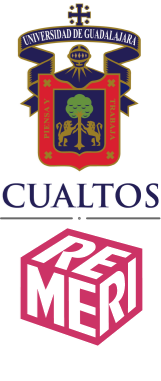Please use this identifier to cite or link to this item:
http://repositorio.cualtos.udg.mx:8080/jspui/handle/123456789/1707| Title: | A Docking and Network Pharmacology Study on the Molecular Mechanisms of Curcumin in Dental Caries and Streptococcus mutans |
| Authors: | Guzmán Flores, Juan Manuel Pérez Reyes, Ángel Vázquez Jiménez, Sonia Isela Isiordia Espinoza, Mario Alberto Martínez Esquivias, Fernando |
| Keywords: | pharmacological network curcumin caries Streptococcus mutans bioinformatics |
| Issue Date: | Jun-2024 |
| Publisher: | MDPI |
| Citation: | Guzmán-Flores, J.M.; Pérez-Reyes, Á.; Vázquez-Jiménez, S.I.; Isiordia-Espinoza, M.A.; Martínez-Esquivias, F. A Docking and Network Pharmacology Study on the Molecular Mechanisms of Curcumin in Dental Caries and Streptococcus mutans. Dent. J. 2024, 12, 153. https:// doi.org/10.3390/dj12060153 |
| Series/Report no.: | Dentistry Journal;Volume 12, Issue 6 (153). |
| Abstract: | Background: Dental caries is a dynamic, multifactorial disease that destroys teeth and can affect anyone’s quality of life because it can cause tooth loss and make chewing difficult. Dental caries involves various factors, such as Streptococcus mutans and host factors. Currently, adjuvant therapies, such as curcumin, have emerged, but how they work has not been adequately described. Therefore, this work aims to identify the molecular mechanism of curcumin in caries and Streptococcus mutans. Methods: We obtained differentially expressed genes from a GEO dataset, and curcumin targets were obtained from other databases. The common targets were analyzed according to gene ontology enrichment, key genes were obtained, and binding to curcumin was verified by molecular docking. Results: Our analysis showed that curcumin presents 134 therapeutic targets in caries. According to the gene ontology analysis, these targets are mainly involved in apoptosis and inflammation. There are seven key proteins involved in the action of curcumin on caries: MAPK1, BCL2, KRAS, CXCL8, TGFB1, MMP9, and IL1B, all of which spontaneously bind curcumin. In addition, curcumin affects metabolic pathways related to lipid, purine, and pyrimidine metabolism in Streptococcus mutans. Conclusions: Curcumin affects both host carious processes and Streptococcus mutans. |
| Description: | Artículo |
| URI: | http://repositorio.cualtos.udg.mx:8080/jspui/handle/123456789/1707 |
| ISSN: | 2304-6767 |
| Appears in Collections: | 3209 Artículos |
Files in This Item:
| File | Description | Size | Format | |
|---|---|---|---|---|
| A Docking and Network Pharmacology Study on the Molecular Mechanisms of Curcumin in Dental Caries and S mutans.pdf | Documento | 17 MB | Adobe PDF | View/Open |
| Enlace a_A Docking and Network Pharmacology Study on the Molecular.htm | Enlace a publicación | 65 kB | HTML | View/Open |
Items in DSpace are protected by copyright, with all rights reserved, unless otherwise indicated.


